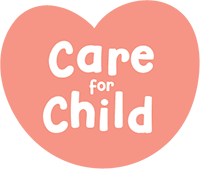What Causes Baby Diaper Rash
To understand how to avoid baby diaper rash during your kid's potty training, first, you need to understand what causes these rashes. Here are the top reasons leading to diaper rash.- A Soiled Diaper Not Changed – Cloth diapers are well-equipped to soak your baby's pee for several hours. But if your baby poops in a diaper, you need to change the diaper immediately. The bacterial build-up on the body and constant exposure to the moisture from the pee and poop can lead to a nasty diaper rash for your baby.
- Ill-Fitted Diapers – Cloth diapers will never lead to a diaper rash for your baby unless they are not correctly fitted. However, the cloth rubbing and chaffing against your baby's delicate skin can lead to inflammation or irritation on the skin and can turn into a diaper rash soon. If your baby is on potty training pants during the training period, ensure you get the proper size based on the size chart – neither too tight nor too loose.
- New Products – Anything that contains harsh chemicals or toxins, whether it be their personal care products or the detergent used to wash your baby's clothes and cloth diapers, they can build up in the clothes and lead to a baby diaper rash too.
- New Food Item – Sometimes, your baby might be allergic to certain food families, ingredients or items. While introducing solid foods, your baby might react to a particular food item and develop a body rash or a diaper rash.
How To Avoid Getting A Baby Diaper Rash
Now that we understand the primary reasons that lead to diaper rashes, let us see what we, as parents, can do to help our kids avoid those painful rashes.- Use Good Quality Cloth Diaper Detergent – Using any regular detergent might adequately clean your baby's cloth diapers. Still, they will reduce the life of your favourite diapers and lead to detergent build-up in the diapers. This build-up can lead to a baby's diaper rash. SuperBottoms has come up with India's only sheet laundry detergent that is formulated keeping in mind the washing needs of cloth-diapering parents – Cloth Diaper Detergent. Properly washed cloth diapers will help you avoid diaper rashes!
- Proper Fitting – A good brand of cloth diapers will not just offer a great product but will also provide post-sale service and help you understand the fitting and master the cloth diapering fitting for your baby. Parents Tribe By SuperBottoms is a community of over 75K parents who can help you understand the cloth diapering journey better.
- Proper Hygiene – Ensure that you change your baby's diapers every 3 – 4 hours, even if they have not pooped in them. Clean the bum properly, and give diaper-free time between diaper changes to let the bum dry completely. These few habits will help you avoid diaper rash forever!
- Safe & Certified Products – Buy products that are certified safe for babies from a trusted authority. And this applies not only to personal care products but also to Baby Care Products. For example, even your baby's cloth diapers should be CPSIA certified to ensure they are free from Phthalates and other harmful chemicals and thus are, in a way rash free diapers.
- Be Mindful About New Food Items – Every time you introduce a new food item, monitor and keep an eye on any changes in their poop pattern or any recent rash on their body. If there is any indication towards an allergy, immediately speak to your baby's paediatrician.
These small steps will save you and your baby from sleepless nights. We hope these tips help you. Happy Parenting!
